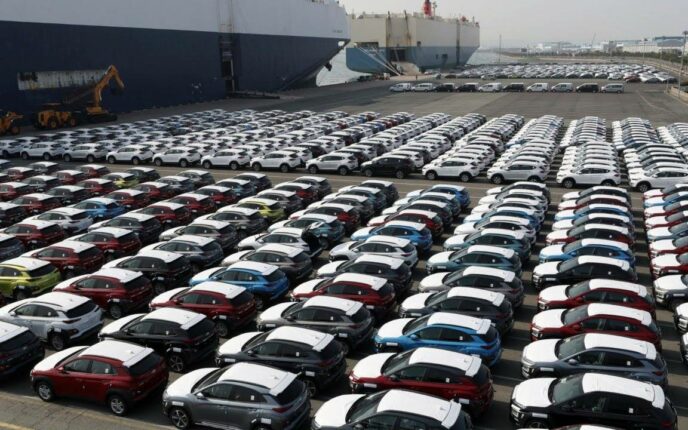
There are fears that an ongoing truck strike in South Korea could cause vehicle supply delays for the likes of Hyundai and Kia.
Truckers have been striking in the region since late last week, in protest of the rising cost of petrol.
According to the South Korean transport ministry Yoon Suk-yeol, more than 7000 members of the Cargo Truckers Solidarty union have participated in the strike across the country. The actual number of truckers on strike is likely to be much higher, according to reports.
Hyundai and Kia have both been named among the companies that have been impacted by the strike actions, impacting both trucks coming into facilities as well as transporters leaving facilities.
Protests have taken place in front of Kia’s Gwangju factory and Hyundai’s Ulsan factory, with approximately 1000 drivers protesting outside the latter factory on Thursday last week, according to Reuters.
It adds that Hyundai’s production output at its Ulsan has been temporarily halved due to the protests. This means the actions are costing the brand between 2000-3000 vehicles per day in terms of output.
“There are some disruptions to our production due to the truckers strike, and we hope production would be normalised as soon as possible,” a Hyundai Motor spokesperson told Reuters.
“There’s only a minimal amount of cargo getting into ports right now,” added the Korean Shippers’ Council in a statement.
“Until [Wednesday], the situation may have appeared okay because some pre-arranged cargoes were being delivered but the reality now is that it is very difficult.”
It’s reported that some Kia workers have started making deliveries with light vehicles in the meantime.
Along with Hyundai and Kia, steel manufacturers have also been targeted by the protests, with POSCO among the most disrupted.
The news follows ongoing vehicle supply shortages around the world, most coming as a direct or indirect result of the COVID-19 pandemic and worldwide inflation.








